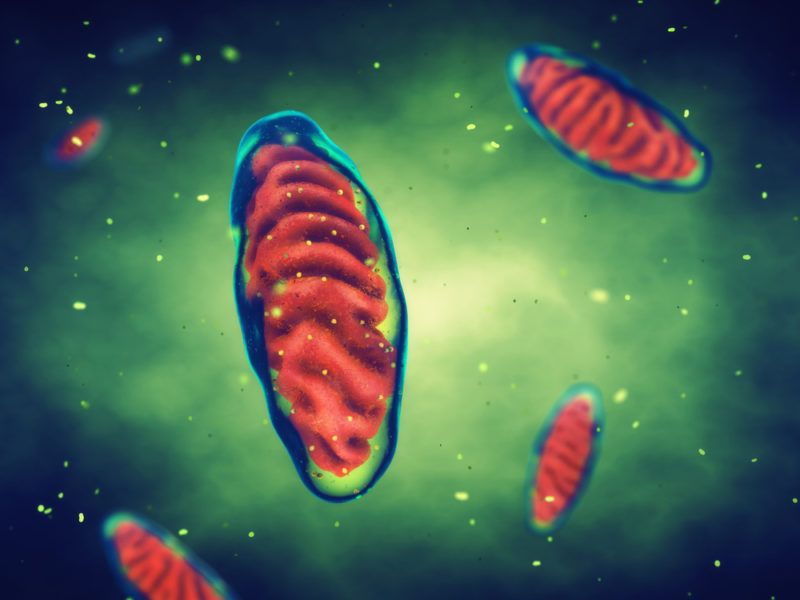A quick 4-minute overview of Epigenetic Rejuvenation – a breakthrough approach to whole-body rejuvenation that can potentially add decades to our lives.
Category: life extension – Page 591

Study proposes a new way to reverse the aging process
A new approach to fight the aging process: rejuvenating the nuclear membrane.
A new discovery about the effects of aging in our cells could allow doctors to cure or prevent diabetes, fatty liver disease and other metabolic diseases — and possibly even turn back the clock on aging itself.
The new finding from the University of Virginia School of Medicine suggests that fatty liver disease and other unwanted effects of aging may be the result of our cells’ nuclei — the compartment containing our DNA — getting wrinkly. Those wrinkles appear to prevent our genes from functioning properly, the UVA researchers found.
There’s no wrinkle cream for nuclear membranes, but there is a tantalizing possibility: We might use viruses to smooth the membranes’ surfaces — and restore the cells to functioning as they did in the glow of youth.
Matthew Scholz, founder and CTO of Immusoft, presenting at Undoing Aging 2018
New video from Undoing Aging 2018: Matthew Scholz, founder and CTO of Immusoft, on their work developing a breakthrough platform for treating a variety of genetic diseases.
Accelerating rejuvenation therapies to repair the damage of aging. Berlin, March, 15 — 17.

Human Skeletal Muscle Aging and Mutagenesis
Study based upon human skeletal muscle aging, mutagenesis, and the role of #satellite cells.
“A more comprehensive understanding of the interplay of stem cell–intrinsic and extrinsic factors will set the stage for improving cell therapies capable of restoring tissue homeostasis and enhancing muscle repair in the aged.”
Human aging has multiple effects on the human body. One of the effects of human aging is the reduction in skeletal muscle (SkM) function and a reduction in the number and activity of satellite cells (SCs), the resident stem cells. The whole genome of single SC clones of the leg muscle vastus lateralis from healthy individuals of different ages (21–78 years) was analyzed, to study the specific connection between SC aging and muscle impairment. In healthy adult muscle rapid increase of SCs is consistent with the accumulation rate of 13 somatic mutations per genome per year. Mutations typically do not happen in SkM-expressed genes because they are protected. However, as mutations in exons and promoters increase, genes involved in SC activity and muscle function are targeted which results in aging. Exons are coding sections of an RNA transcript, or the DNA encoding it, that are translated into protein. Proteins are the synthesis of molecules. A change in of a single base pair that caused the substitution of a different amino acid in the resulting protein (missense mutation) that was propagated to the muscle and detected in association with SC mutations affecting the whole tissue. #Somatic mutagenesis in SCs as a result is the driving force in the age related decline of SkM function.
Satellite Cells
Satellite cells (SCs) are a heterogeneous population of stem and progenitor cells. These cells play an important role in the growth and development of myofiber. The enlargement, regeneration, and remodeling in skeletal muscle (SkM) is the pivotal role of satellite cells. Satellite cells are dormant until they become activated through exercise or SkM injury. Upon injury skeletal muscle have a remarkable ability to recover from injury. Skeletal muscle goes through a sophisticated degeneration and regenerative process that takes place at the tissue, cellular, and molecular levels. This regenerative process relies upon the dynamic interplay between satellite cells and their environment (stem cell niche). SCs multiply further when committed to myogenic differentiation. As SCs proliferate further they begin to combine with existing SkM fibers and supply new nuclei to the growing and regenerating fibers. The declining of numbers of proliferative potential of SCs is one sign of aging in human SkMs.
A flawed SC compartment is foreseen as a major contributor for age-related deficiencies such as, skeletal muscle tissue having restricted mobility and voluntary functions. The results of such defects include a reduced capacity to respond to hypertrophic stimuli such as exercise and impaired recovery from muscle disuse and injury and the disruption of muscle tissue homeostasis. Moreover, the SCs of nonactive adult animals have been shown to contribute to differentiated fibers in non-injured muscles. Less important is the basal turnover of nuclei in adult fibers in the protection from sarcopenia. This hypothesis was tested and showed that lifelong reduction of satellite cells neither accelerated nor exacerbated sarcopenia and that satellite cells did not contribute to the maintenance of muscle size or fiber type composition during aging, but that their loss may contribute to age-related muscle fibrosis. The progressive loss of SkM mass and function known as sarcopenia affects up to 29% of the population aged 85 years. The accumulation of sarcopenia causes a highly disabling condition. It is essential, nonetheless, that the characterization of SCs in human pathology be further explored. SCs are a key factor in limiting the occurrence of fibrosis in the SkM of mice affected by sarcopenia.
The progressive loss of SkM mass and function known as sarcopenia affects up to 29% of the population aged 85 years. The accumulation of sarcopenia causes a highly disabling condition. It is essential, nonetheless, that the characterization of SCs in human pathology be further explored. Scs are key in limiting the occurrence of fibrosis in the SkM of mice affected by sarcopenia. Genome integrity is essential for the function of stem-cells. But there still must be some stability of the genome. Genetic mutations in the soma has diverse physiological roles and pathological consequences, such as the decline of stem-cell functions. Starting from the first division of the embryo, modifications in the genome extend from single-base changes (single-nucleotide variants (SNVs)) to insertions or deletions of a few bases (indels) to chromosomal rearrangements and occur during the whole life. Somatic variants are not propagated to the whole individual but to a subpopulation of cells in the body, which is strikingly different from germline variants. Adult human tissues become a mosaic of genetically different cells as a result. Furthermore, as a result of the buildup of errors taking place either during cell-division or because of environmental induced DNA damage, somatic mutation burden increases, causing age-related disease. Currently, somatic mutation burden in human SCs or SkM is unknown.
The purpose of the investigation of genetic alterations that occur with aging in the genome of human adult SCs is to use the results to clearly explain mutational processes and SC replication rate occurring in vivo in adult human muscles. The prediction of global consequences on muscle aging and sarcopenia was done by evaluating the functional effects of somatic mutations on SC proliferation and differentiation.
Results
- An accumulation of 13 mutations per genome per year that results in a 2–3-fold higher mutation load in active genes and promoters in aged SCs.
- High mutation burden correlates with defective SC function. • The accumulation of somatic mutations as an intrinsic factor contributing to impaired muscle function with aging.
- The accumulation of somatic mutations as an intrinsic factor contributing to impaired muscle function with aging.
Resources:
“Somatic mutagenesis in satellite cells associates with human skeletal muscle aging.”
Nature Communications volume 9, Article number: 800(2018) Full Abstract Study
“Satellite Cells and the Muscle Stem Cell Niche.”
Physiological Reviews Volume 93, No.1 (2013) Physiological Reviews
“Tissue-specific mutation accumulation in human adult stem cells during life.”
Nature International Journal of Science volume 538, pages 260–264 (13 October 2016) Abstract Study
“When stem cells grow old: phenotypes and mechanisms of stem cell aging”
Development for advances in developmental biology and stem cells Development 2016 143: 314 Abstract Study “Clock-like mutational processes in human somatic cells.”
Nature Genetics volume 47, pages 1402–1407 (2015) Abstract Study


Dynamics of Telomere Rejuvenation during Chemical Induction to Pluripotent Stem Cells
Chemically induced pluripotent stem cells (CiPSCs) may provide an alternative and attractive source for stem cell-based therapy. Sufficient telomere lengths are critical for unlimited self-renewal and genomic stability of pluripotent stem cells. Dynamics and mechanisms of telomere reprogramming of CiPSCs remain elusive. We show that CiPSCs acquire telomere lengthening with increasing passages after clonal formation. Both telomerase activity and recombination-based mechanisms are involved in the telomere elongation. Telomere lengths strongly indicate the degree of reprogramming, pluripotency, and differentiation capacity of CiPSCs. Nevertheless, telomere damage and shortening occur at a late stage of lengthy induction, limiting CiPSC formation. We find that histone crotonylation induced by crotonic acid can activate two-cell genes, including Zscan4; maintain telomeres; and promote CiPSC generation. Crotonylation decreases the abundance of heterochromatic H3K9me3 and HP1α at subtelomeres and Zscan4 loci. Taken together, telomere rejuvenation links to reprogramming and pluripotency of CiPSCs. Crotonylation facilitates telomere maintenance and enhances chemically induced reprogramming to pluripotency.

NAD+ Precursor Has Therapeutic Potential Against Parkinsons Disease
Today, we will be taking a look at a new study showing that an NAD+ precursor was able to improve mitochondrial function in cells and flies with a model of Parkinson’s disease.
Summary
While mitochondrial dysfunction is emerging as key in Parkinson’s disease (PD), a central question remains whether mitochondria are actual disease drivers and whether boosting mitochondrial biogenesis and function ameliorates pathology. We address these questions using patient-derived induced pluripotent stem cells and Drosophila models of GBA-related PD (GBA-PD), the most common PD genetic risk. Patient neurons display stress responses, mitochondrial demise, and changes in NAD+ metabolism. NAD+ precursors have been proposed to ameliorate agerelated metabolic decline and disease. We report that increasing NAD+ via the NAD+ precursor nicotinamide riboside (NR) significantly ameliorates mitochondrial function in patient neurons. Human neurons require nicotinamide phosphoribosyltransferase (NAMPT) to maintain the NAD+ pool and utilize NRK1 to synthesize NAD+ from NAD+ precursors. Remarkably, NR prevents the age-related dopaminergic neuronal loss and motor decline in fly models of GBA-PD.

The Responsibility of Immortality: Welcome to the New Transhumanism
I, for one, still dream of flourishing in the future through advances in science and technology, but hopefully one that addresses societal inequities, retains the richness and diversity of our natural systems and indigenous cultures, rather than the somewhat simple and sterile futures depicted by many science fiction writers and futurists. Timothy Leary liked to remind us to remember our hippie roots, with their celebration of diversity and nature, and I hear him calling us again.
What used to be the province of acid-tripping tie-dye wearers has been co-opted by Silicon Valley—and we must be responsible about how we wield this new reality.

Lifespan of fruit flies extended
The secret to longevity may lie in the microbiome and the gut, according to researchers from McGill University, Canada.
It is already known that the bacteria living in our intestinal tract could have an influence on how well we age. Building on this knowledge, McGill University scientists fed fruit flies with a combination of probiotics and a herbal supplement called Triphala. These experiments were able to prolong the insects’ longevity by 65% and protect them against chronic diseases associated with aging.

Genomic Approach to Understand the Association of DNA Repair with Longevity and Healthy Aging Using Genomic Databases of Oldest-Old Population
Aged population is increasing worldwide due to the aging process that is inevitable. Accordingly, longevity and healthy aging have been spotlighted to promote social contribution of aged population. Many studies in the past few decades have reported the process of aging and longevity, emphasizing the importance of maintaining genomic stability in exceptionally long-lived population. Underlying reason of longevity remains unclear due to its complexity involving multiple factors. With advances in sequencing technology and human genome-associated approaches, studies based on population-based genomic studies are increasing. In this review, we summarize recent longevity and healthy aging studies of human population focusing on DNA repair as a major factor in maintaining genome integrity. To keep pace with recent growth in genomic research, aging- and longevity-associated genomic databases are also briefly introduced. To suggest novel approaches to investigate longevity-associated genetic variants related to DNA repair using genomic databases, gene set analysis was conducted, focusing on DNA repair- and longevity-associated genes. Their biological networks were additionally analyzed to grasp major factors containing genetic variants of human longevity and healthy aging in DNA repair mechanisms. In summary, this review emphasizes DNA repair activity in human longevity and suggests approach to conduct DNA repair-associated genomic study on human healthy aging.
Aging is an inevitable process in human life. Many countries are rapidly transitioning to an aging society due to increasing life expectancy and advanced medical supports [1–3]. Over the last few decades, the advent of aging society is considered a crucial issue that may cause future decline in productivity of community [1, 4]. Many researchers have recently warned that urban environmental pollutants can cause physiological weakness and increase the risk of premature aging or chronic diseases in the elderly population [5–9]. Thus, interest in antiaging and healthy longevity is constantly increasing. “Active aging” or “successful aging” has been spotlighted as a strategy to promote social contribution of the elderly [10]. The definition of successful aging remains controversial.

